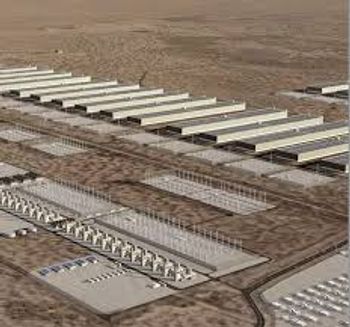
Cyberattack disrupts major East Coast pipeline
A cyberattack halted operations at the Colonial Pipeline, is a 2.5-million-barrel-per-day system consisting of 5,500 miles of pipeline spanning the U.S. Gulf Coast to the East Coast.
A cyberattack on May 7 disrupted operations on the Colonial Pipeline, a 2.5-million-barrel-per-day system consisting of 5,500 miles of pipeline spanning the U.S. Gulf Coast to the East Coast. As of May 10, the main lines were still out of operation, but some smaller lines were up and running. Gas shortages and price increases could occur if the disruptions continue longer than expected.
The pipeline delivers about 45% of the fuel for the East Coast, particularly for several states in the southeastern United States. It carries refined petroleum products such as gasoline, diesel, heating oil, and jet fuel from Houston, Texas, on the U.S. Gulf Coast up to Linden, New Jersey, and serves several markets along the route through various branch lines. Because no refineries between Alabama and the mid-Atlantic produce substantial quantities of transportation fuels, the southeastern United States is supplied primarily by pipeline flows, and to a lesser degree, with marine shipments from the U.S. Gulf Coast and imports.
After the F.B.I., the U.S. Energy Department, and the White House held a press conference, Colonial Pipeline’s corporate computer networks were attacked with ransomware – where criminal groups hold data hostage and demand a ransom in exchange for its return. The company said it had shut the pipeline as a precaution for fear that the hackers could obtain information that could further jeopardize the pipeline’s cyber security. Officials said the attack was likely the act of a criminal group, rather than by a foreign country.
Until Colonial Pipeline resumes operation, petroleum distribution terminals in the Southeast will rely on inventories and on supplies obtained from alternative sources, such as the smaller 720,000 b/d Plantation Pipeline that also carries petroleum products from the U.S. Gulf Coast to as far as Washington, DC.
Pipeline shipments move at approximately five miles per hour, so some markets may need to rely on inventories for several days after Colonial Pipeline service is restored. Markets along the Atlantic Coast with access to deepwater ports, such as Savannah, Georgia; Charleston, South Carolina; Wilmington, North Carolina; and Norfolk, Virginia, can receive limited imports from the global market and from marine shipments via coastwise compliant shipping originating from the U.S. Gulf Coast. Central Atlantic and Northeast markets can import petroleum products from Europe and Canada, and they can also obtain supplies from in-region refineries.
Federal and state governments have issued regulatory waivers and notices to loosen restrictions on trucked shipments of petroleum products. As of May 9, the Federal Motor Carrier Safety Administration issued waivers on driving time for truckers delivering refined petroleum products for 17 states and the District of Columbia.
Newsletter
Power your knowledge with the latest in turbine technology, engineering advances, and energy solutions—subscribe to Turbomachinery International today.




